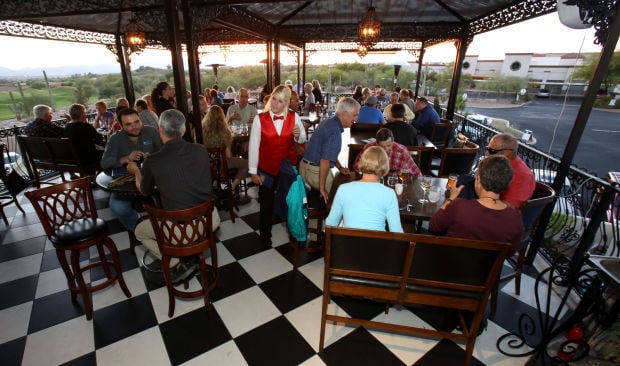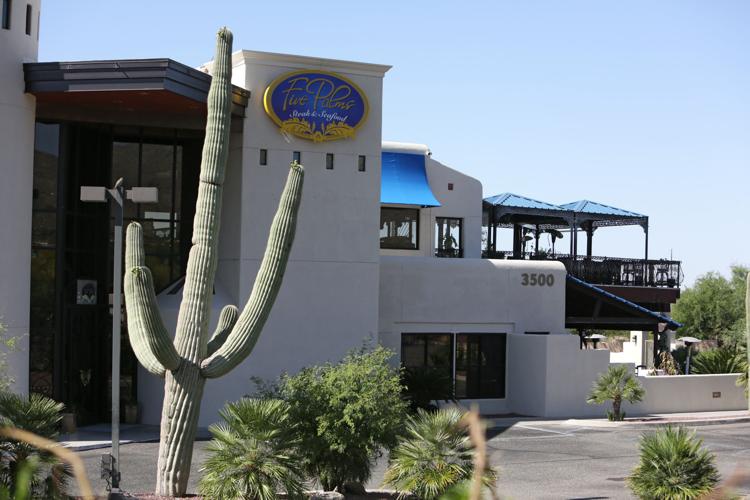Tucson’s Five Palms Steak and Seafood is in the middle of a copyright lawsuit for not having the proper licensing for some of the music played there.
The upscale Foothills restaurant has live music five to seven nights a week. There’s dancing, a DJ and recorded music, too, said Jodie Thomas, a spokeswoman for BMI, the company suing Five Palms.
“When copyrighted music is performed in an establishment, regardless of whether it is performed by a live band, DJ, karaoke or a jukebox, the business owner must obtain permission from the copyright owner,” Thomas said via email.
The copyright lawsuit is the latest episode in recent troubles for the restaurant, which include a failed health inspection last month, its second in six months. That inspection found excessive buildup of debris on kitchen equipment and utensils and a walk-in fridge running at higher temperatures than code standards allow.
The restaurant also previously failed two consecutive inspections in June of 2014, according to Star news archives. It passed its re-inspection last week.
Nino Aidi, the restaurant’s owner, said Five Palms is currently paying its music licensing fees to ASCAP and is making arrangements with BMI for its licensing.
BMI holds 10.5 million musical works in their “BMI Repertoire.” A proper license allows businesses to play the copyrighted songs in public, Thomas said.
BMI reached out to Five Palms’ owner 109 times starting in September of 2013, including 69 phone calls and messages, at least 40 letters — including cease and desist notices — and emails in an attempt to warn the establishment of its obligation to pay for the music, court documents show. Ten claims of willful copyright infringement were made by BMI.
Some of the claims are for well-known songs like “Blue Suede Shoes,” “Margaritaville” and “Oh, Pretty Woman.” .
Penalties for not paying BMI can range from $750 to $150,000 per song if willful infringement is found, Thomas said.
“We never want to see things escalate to a lawsuit, which is why we spend a lot of time trying to educate,” said Thomas, noting lawsuits are a last resort for the company. “We want to work with businesses to ensure that everyone benefits from the music.”
According to Thomas, a license can cost less than a dollar a day depending on the size of the establishment, the type of music being played and how often the music is performed. Some business owners are unaware of the federal copyright law, according to Thomas, so BMI spends a lot of time educating them about the law’s requirements and the importance of obtaining a music license.
Thomas said that most business owners comply with the copyright law and obtain a music license, which is why they advertise on social media and charge for admittance. But for those who don’t, several attempts at contacting the business owner through phone calls and letters are made, after which an in-person visit may occur .
“As a performing-rights organization, it is our mission to work on behalf of the songwriter to make sure they are compensated for their work whenever their music is played or performed in a public place,” Thomas said. “Songwriters are entitled to be paid for their creative works.”
When the company would call Five Palms about the copyright violations, Aidi says the former manager would inform them that the restaurant was already paying dues to ASCAP. That manager was not aware that multiple music companies had to be paid to cover many different songs.
Aidi said he is currently negotiating to have the lawsuit dismissed by paying the dues and becoming a member of BMI in addition to ASCAP.
“Now if we are a member of both companies, that means we are 90 percent of the market,” Aidi said. “And that’s what we are trying to do.”





